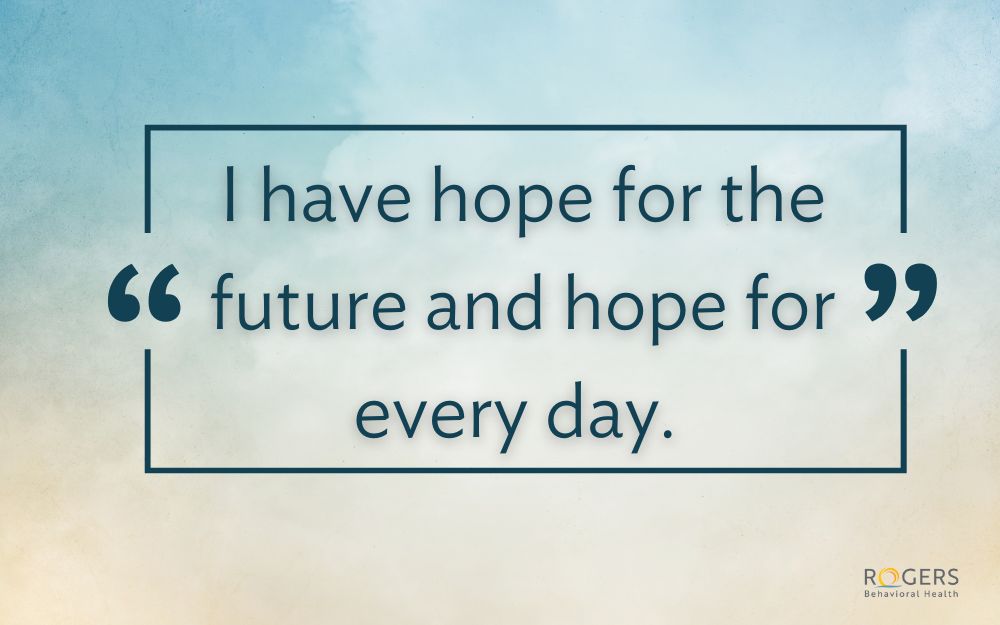Changes in family dynamics during virtual learning
Posted on 01/12/21 03:42:pm
Share this article:
For most people, home is a place where you can escape from the stresses of work and school. But for many of us—homes are now also serving as a shared space for professional and academic needs. Due to this, conflict is likely to happen, but it doesn’t need to negatively impact your family dynamic.
Normalize how your child is feeling
According to Rogers experts, the best way to help manage family dynamics during this time is to acknowledge that there will be tense situations and that it’s normal for a child to feel worried or on edge.
Nancy Goranson, PsyD, attending psychologist in West Allis, says that people are experiencing more stress due to the circumstances of the pandemic—and that’s something parents should validate with their kids. “Let them know that it’s okay to feel stressed right now and that it’s normal,” Dr. Goranson says.
One way to do this is for parents to acknowledge things in their own life that are frustrating.
“Saying ‘this meeting that’s coming up is stressful’ gives voice to that feeling in front of a child, so the child can see that it’s ok to feel that way,” adds Dr. Goranson. “Or that they can say they don’t like math class because it’s harder for them to learn it virtually.”
Kristin Miles, PsyD, attending psychologist, at Rogers’ West Allis location, agrees, adding that it is also an opportunity to model healthy ways to cope with these situations. “In that meeting you could use a fidget device or go for a quick walk afterward,” she says.
When you accept that tense situations will occur, it also allows you to plan ahead and try to stop them when you notice the signs.
“If someone is looking like they’re feeling stressed, try to find a kind, approachable way to say, ‘you look frustrated’ and help them diffuse the situation,” explains Dr. Miles. “You can do this with distractions, breaks, a change of scenery, having a snack ready, or just asking how someone is doing.”
Dr. Miles also adds that parents can give praise when they see their child managing stress. “If they’re in class you can let them know that you noticed how frustrating it was for them not to be picked to answer the question, but that they managed it well and did a good job waiting their turn.”
Build a new routine for kids
Virtual learning and social distancing are a departure from a schedule that kids are familiar with. Dr. Goranson says that establishing and sticking to a new routine can help children feel more at ease during this time.
“If children are staying home, we encourage creating a routine so they can predict what their day will look like,” Dr. Goranson points out. “If they know they can look forward to a family breakfast in the morning before logging in for school, that can decrease their stress.”
Making time for a daily activity shouldn’t become a new form of stress for yourself, though. “It doesn’t need to be a complex activity,” Dr. Goranson says. “It can be as simple as going to play catch or riding a bike.”
Remember that everyone needs free time
For families who find themselves cramped in the same space or at the same table for much of the day, it’s helpful for kids to be able to find time away from the rest of the family.
“It’s good to build in time when they can do things by themselves,” Dr. Miles says. “They need downtime to get away from people and the computer.”
While Dr. Miles says that teens may need an extra push to have a tech-free downtime, she also offers a reminder that things like social media and playing games online is how teens stay connected and socialize with friends outside of school. “We want a good balance between tech and non-tech time,” she adds.
Parents also need to remember that they should be caring for themselves and setting aside time to be spent away from other members of their families.
“We have to remember to still do the things that bring us happiness,” shares Dr. Miles. “Such as having some quiet time to read a book when no one else is going to burst through the door with their own needs.”
Rogers can help
If you or someone you love is struggling with mental health, Rogers offers compassionate, evidence-based care for adults, adolescents, and children across the country. Call 800-767-4411 for a free, confidential screening or request one online.



